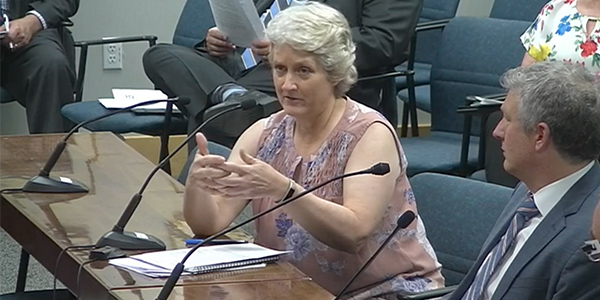By Tom Kleckner
Real-time co-optimization (RTC) in ERCOT took another step toward become reality last week following a discussion between Texas regulators and grid operator staff.
Kenan Ögelman, ERCOT’s vice president of commercial operations, told the Public Utility Commission on Thursday that he has his marching orders, thanks to a memo from PUC Chair DeAnn Walker.
“The memo allows us to get started on the key things. We do want a set of principles done by end of the year, if possible,” Ögelman said during the PUC’s regular open meeting.
RTC is a market tool that procures both energy and ancillary services every five minutes to find the most cost-effective solution for both requirements.
In her memo, Walker’s suggested initial values for the RTC market’s systemwide offer cap ($2,000/MWh) and the value of lost load ($9,000/MWh). She also agreed with staff recommendations to maintain the current market’s low systemwide offer cap at $2,000/MWh and that the ancillary service (AS) demand curves replicate the operating reserve demand curve’s pricing outcomes.
Walker suggested that further information be gathered for the PUC’s July 18 meeting, noting that ERCOT stakeholders commenting in the docket (48540) have advocated for changes to the day-ahead market when RTC is implemented.
The only sticking point appears to be staff’s recommendation that the current prohibition against withholding in the energy market be applied to the AS market.
Walker said her understanding is that ERCOT plans to address stakeholder concerns by allowing resources to indicate whether they can provide AS “over the full range of their output.” She said the commission did not need to address the issue because ERCOT stakeholders would fill in the details as they debate a requirement that resources provide a capacity offer curve that is qualified, online and capable of providing AS.
“I don’t think we can sit here today and make those decisions,” Walker said. “I was trying to set a basic framework. … We have to start building the system, but we don’t have to paint it right now and decide what color to paint it.”
PUC staffer Mark Bryant urged the commission to make clear that withholding resources “would constitute an anticompetitive behavior and would not be permitted.” Beth Garza, director of the ERCOT Independent Market Monitor, sided with Bryant.
“As we tie ancillary services and energy together, the ability to withhold on AS becomes a much bigger lever that can be played out in energy prices,” Garza said. She said exempting market participants with less than 5% of the market’s resources “could give free rein to small parties to economically withhold ancillary services in a way that it has a great effect on energy prices.”
“If your unit is available and capable of providing a service, there should be an offer,” Garza said. “If you don’t have an offer, one will be provided for you. There’s still some work at the commission level to set that expectation and policy.”
“The IMM’s job is to make sure [anticompetitive behavior] doesn’t happen, but we can’t establish the rules so tight … that it chokes the market,” Walker said.
In the end, staff promised to provide a proposal on how to address the smaller resources.
ERCOT has said it will take four or five years and at least $40 million to implement RTC, but that timeline could slip as the project’s scope widens.
Commission OKs AEP Renewables’ Investment
In other actions, the PUC cleared AEP Renewables’ purchase of a 75% interest in Invenergy’s Santa Rita East Wind project, a 302-MW facility currently under construction west of San Angelo. When the transaction closes, AEP will own and control 976 MW of the capacity that will be installed within the next 12 months in ERCOT (49252).
The commission also approved three settlement agreements that levied $170,000 in administrative penalties on ERCOT market participants:
- Stream SPE, a retail electric provider, was assessed $85,000 for improperly applied customer switch-holds (49472).
- NRG Texas Power (49221) and Golden Spread Electric Cooperative (49476) were assessed $60,000 and $25,000, respectively, for failing to adequately respond to non-spinning reserve service deployments.





